Dr. Zheng [Fayez Sarofim Fellow] is dedicated to the development of technologies for studying tumor evolution within their native contexts. Understanding the complex processes of cancer growth and progression requires a deep exploration of the dynamic interactions between tumor cells and the tumor microenvironment. “Spatial-omics” technologies are powerful tools that offer direct visualization of cells and their interactions in natural contexts, enabling systematic investigation of these intricate processes. Dr. Zheng aims to develop novel spatial-omics technologies that combine imaging and gene sequencing approaches to uncover the mechanisms underlying the spatially distinguished features of tumor evolution. Dr. Zheng received his PhD from Harvard University, Cambridge and his BS from Peking University, Beijing.


Immunotherapy has significantly changed how lung cancer and melanoma are treated. Unfortunately, only a small percentage of patients experience long-lasting responses. Gut bacteria have emerged as a potential predictor of how patients will respond to immunotherapy and may even be adjusted to enhance the effect of immunotherapy. Dr. Shaikh aims to identify features of the gut microbiome that correlate with immunotherapy responses. She will focus on both individual bacteria as they change over the course of treatment and the metabolites made by the entire bacterial community in the colon. The goal of this project, since gut bacteria can be modified, is to develop microbiome-based treatments to be used in combination with immunotherapy to improve response rates or overcome immunotherapy resistance for patients.

Mutations in the EGFR gene were identified as the first targetable mutations in lung cancer about two decades ago. Since then, multiple targeted therapies have been approved and prolonged many lives. However, about 15% of EGFR mutations are atypical and do not have a current approved targeted therapy. Dr. Le is leading multiple clinical trials to address this unmet need. With new treatments potentially entering the clinic, new mechanisms of treatment resistance will likely evolve. Dr. Le aims to comprehensively characterize resistance mechanisms and compare resistance predisposition across different types of EGFR-linked lung cancers. She will leverage cutting-edge techniques to determine the mutations at single-cell level and develop rational therapeutic strategies to overcome resistance. This project has the potential not only to bring new FDA-approved treatments to patients but also establish clinical strategies to predict and target major resistance mechanisms.
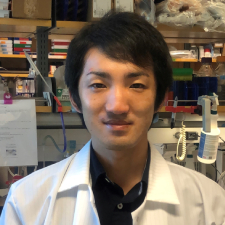
Lung cancer remains the leading cause of cancer mortality. Substantial breakthrough discoveries, including the identification of lung cancer-specific genetic drivers (e.g., EGFR mutations, EML4-ALK fusion genes) and the development of molecular inhibitors of these pathogenic factors, have improved outcomes for patients with advanced-stage lung cancer. However, lung cancer cells eventually acquire resistance to these molecular inhibitors, resulting in progressive disease. Dr. Manabe’s [Connie and Bob Lurie Fellow] research focuses on protein compounds formed by the self-assembly of oncogenic fusion proteins such as EML4-ALK. These compounds initiate a signaling pathway that causes abnormal cell proliferation in cancer. Dr. Manabe will explore the newly discovered structures of signaling proteins with the goal of developing molecular therapies that enhance precision medicine strategies and improve the control of lung cancer. Dr. Manabe received both his MD and PhD from Keio University School of Medicine.
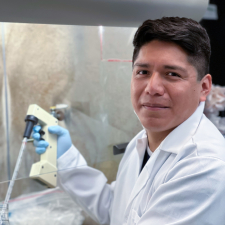
Human cells compact their vast genomes into the small confines of the nucleus by wrapping their DNA into a highly complex structure called chromatin. Packaging DNA into chromatin, however, affects all nucleic acid-transacting machines (e.g., transcription factors) that need to access the genomic information stored in the DNA. NuRD is a large multi-subunit protein complex that plays a major role in making chromatin either accessible or inaccessible. Dysregulation of NuRD and aberrant targeting of the complex can result in the emergence of several types of cancers, including breast, liver, lung, blood, and prostate cancers. Dr. Osorio Valeriano’s [Philip O'Bryan Montgomery, Jr., MD, Fellow] work will reveal mechanistic aspects of NuRD-mediated chromatin regulation and pave the way for the development of novel therapeutic approaches that target cancers more effectively. Dr. Osorio Valeriano received his PhD from Philipps University and his MSc and BSc from the National Autonomous University of Mexico.
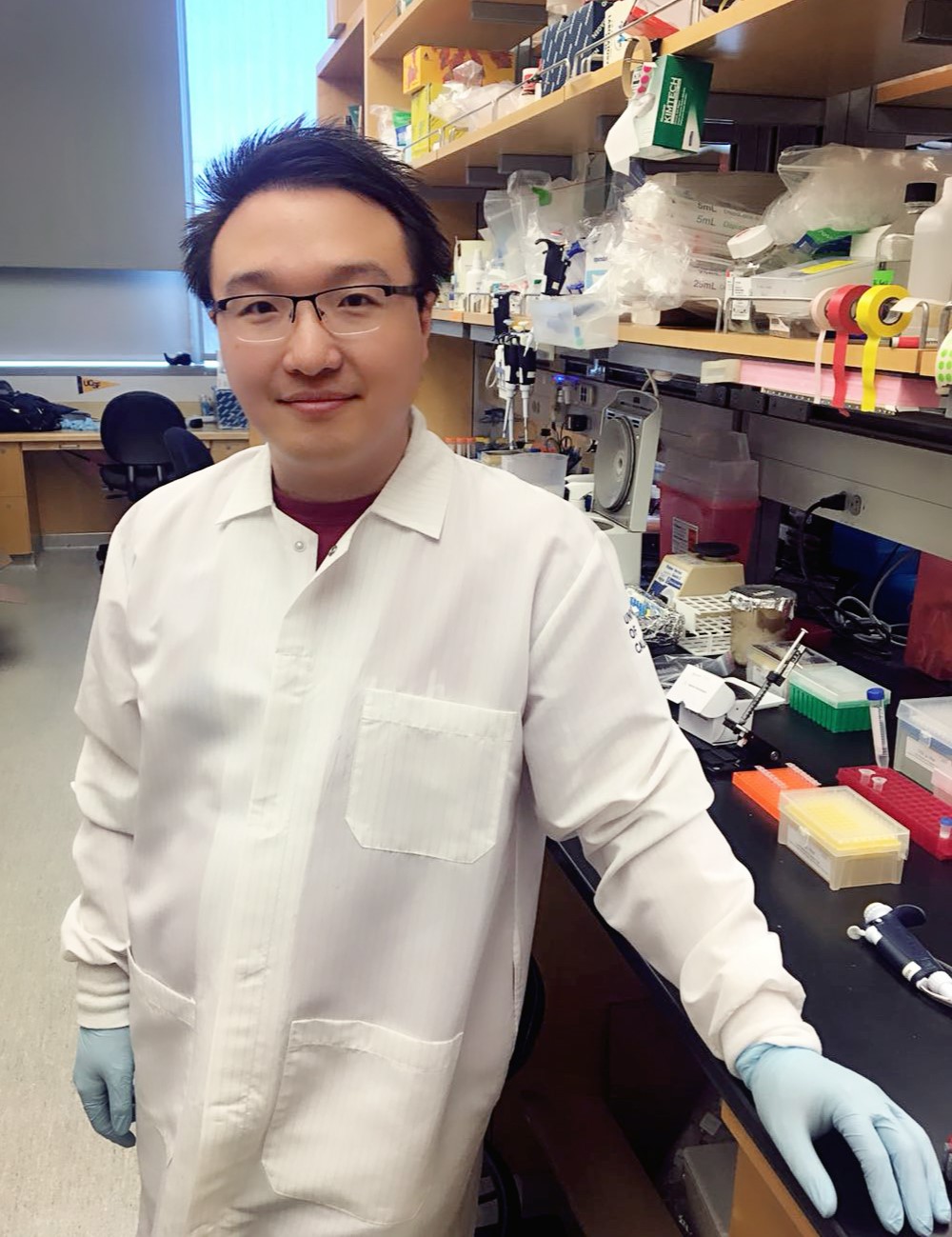
Dr. Yang is examining tumor heterogeneity in search of new diagnostic markers and potential therapeutic targets. A tumor consists of not only cancer cells, but also immune cells, fibroblasts, and other stromal components. The diverse cell types and cell states that form the tumor microenvironment (TME) may promote disease progression and lead to therapeutic resistance. Dr. Yang aims to uncover fundamental principles of tumor evolution by generating a comprehensive and quantitative “traffic map” of cancer cell state transitions and fitness changes during tumor development. Understanding this fundamental question has the potential to reveal key biomarkers that predict treatment response and actionable targets that drive resistance, thereby opening up new possibilities for long-lasting, multilayered tumor control.

Intra-tumoral heterogeneity (ITH), or the evolution of distinct cell types within a tumor, underlies most fatal features of cancer and presents a great therapeutic challenge. Using small cell lung cancer (SCLC), a highly heterogeneous and lethal form of lung cancer, as a model, Dr. Bhattacharya [Robert Black Fellow] will study how ITH arises during cancer progression. She will employ emerging genomics techniques to characterize the cellular subtypes that comprise SCLC tumors and identify “druggable” transcription factors which, if targeted, could reduce tumor heterogeneity in this cancer. By profiling thousands of cells from treatment-naïve and therapy-resistant tumors, Dr. Bhattacharya aims to identify the “master-regulators” of the cellular subtypes that expand upon treatment in SCLC. She will then evaluate the role of these factors in human patient-derived cell lines, with the goal of uncovering novel mechanisms underlying ITH in human cancers. Dr. Bhattacharya received her PhD from Cornell University and her BS from the University of Calcutta.
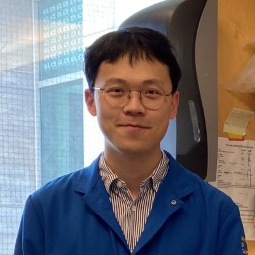
Dr. Zheng [Connie and Bob Lurie Fellow] is developing small molecules that selectively inhibit the protein K-Ras(G12D). Pancreatic ductal adenocarcinoma (PDAC) is the most lethal common cancer due to the infrequency of early diagnosis and the lack of targeted or immune therapies. A high percentage (>90%) of PDAC patients harbor KRAS mutations, with the majority expressing the K-Ras(G12D) missense mutation. Despite extensive drug discovery efforts across academia and industry, there are no approved drugs directly targeting oncogenic K-Ras(G12D). K-Ras lacks an apparent surface topology for reversible small molecule binding, leading to its notorious characterization as “undruggable.” Dr. Zheng is searching for small molecules that form a permanent bond with the mutant protein at its missense site and inhibit its interaction with effector proteins.
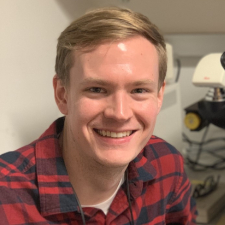
Dr. Walter focuses on splicing factor genes, which carry out the RNA splicing process and are widely mutated in lung cancer. The splicing factor U2AF1 is mutated in 2% of lung cancer patients, but 80% of these mutations are identical, making it one of the most common missense mutations in lung cancer. Scientists do not have a good understanding of why this mutation occurs, or how it promotes cancer development. Dr. Walter will use a combination of cell and mouse model systems along with patient data to identify the unique molecular and genetic features of U2AF1-mutant cancer cells with the goal of identifying new therapeutic targets for lung cancer patients.
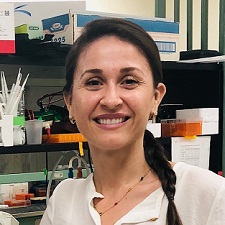
Current pancreatic cancer chemotherapies are not effective, and targeted therapies are only applicable in about 5% of cases. Furthermore, pancreatic cancers cause immune cell stress, limiting the success of immunotherapies in this disease. Using animal models and tumor samples from pancreatic cancer patients, Dr. Escobar-Hoyos has discovered that changes in RNA splicing, a process that controls protein diversity in cells, are crucial for pancreatic cancer development, therapy resistance, and disruption of anti-tumor immunity. She plans to dissect the molecular role of RNA splicing in pancreatic cancer, which likely drives the disease's lethality. She seeks to develop a novel anti-RNA splicing therapy with dual action-a targeted therapy against tumor cells coupled with an immunotherapy to restore immune cell anti-tumor activity-to more effectively treat pancreatic cancer patients.
